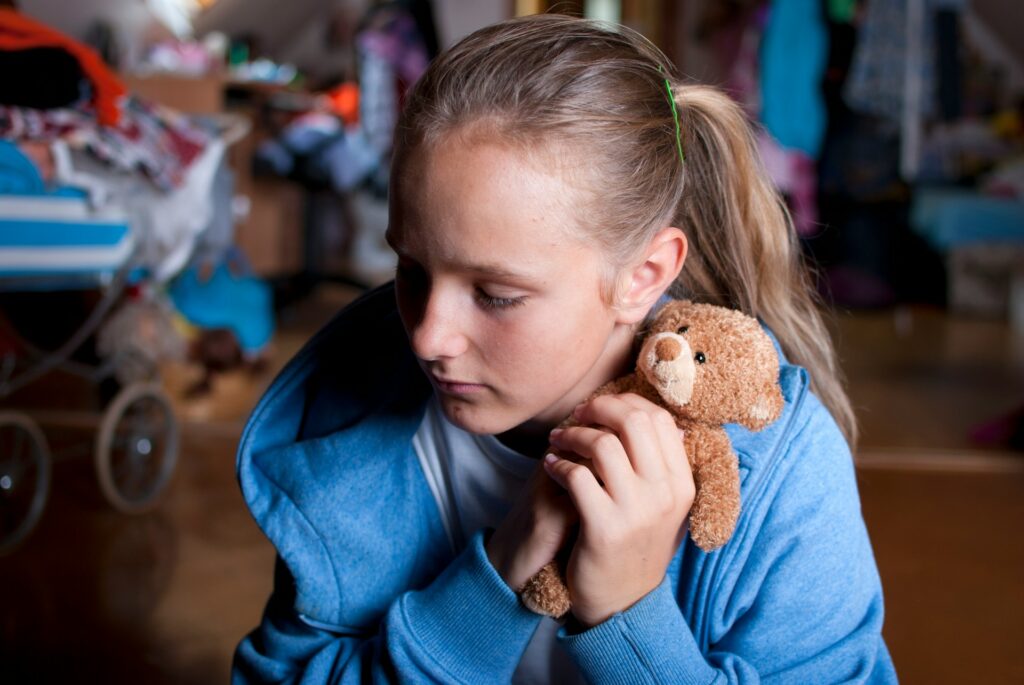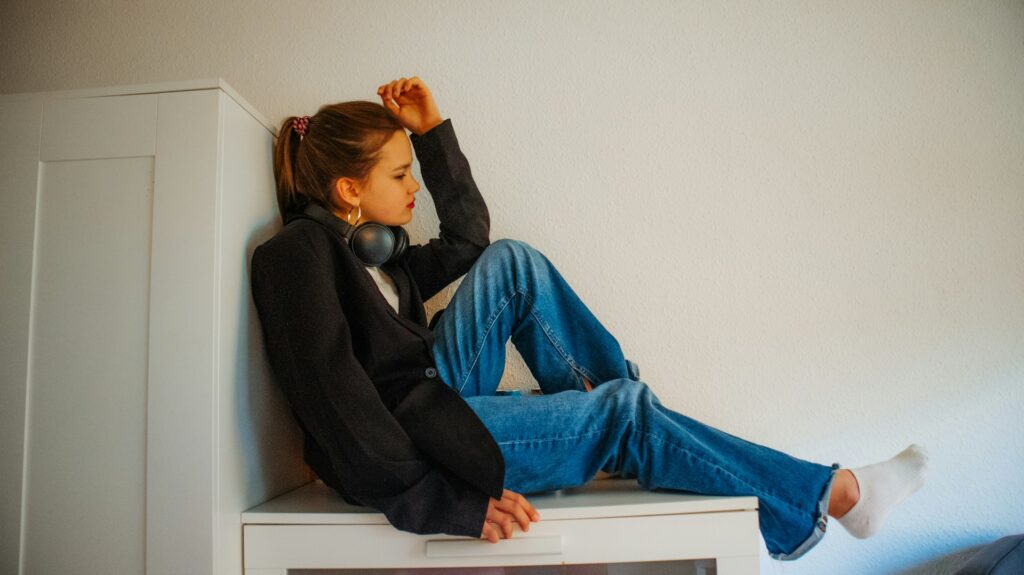Teen anxiety is extremely common these days—one in six report experiencing it, according to Mind.

While most parents want to help, they’re often navigating unfamiliar territory with outdated tools. The world teens are growing up in today is nothing like it was a generation ago, but many adults still respond using old frameworks that just don’t land anymore. Here are some of the ways well-meaning parents might be misunderstanding their anxious teens, and what could make a bigger difference instead.
1. Thinking it’s just a phase they’ll grow out of

There’s a belief that teens are just naturally moody or overdramatic, and that anxiety is part of that normal chaos. While some emotional swings are typical, real anxiety isn’t something most teens just outgrow on their own. Dismissing it as a phase can leave teens feeling brushed off instead of supported. When their emotions are minimised, they often stop sharing, and that isolation makes everything worse.
2. Treating every anxious moment as something that needs to be “fixed” fast

Parents often jump straight into problem-solving mode when their teen is panicking or overwhelmed. However, trying to fix it immediately can feel invalidating, like there’s no space to just feel the emotion first. Teens don’t always need a solution. They need to feel safe and heard. Being present with them in the discomfort goes further than rushing into advice or quick fixes they didn’t ask for.
3. Assuming that if school performance is fine, they must be okay.

Many anxious teens still get good grades, show up on time, and look like they’re coping. However, anxiety doesn’t always tank performance—it can hide behind perfectionism and pressure to appear “together.” High achievement can actually be a mask for deep internal panic. Just because they’re functioning doesn’t mean they’re fine. Sometimes the most overwhelmed teens are the ones trying hardest to seem okay.
4. Comparing their teen’s struggles to their own childhood

It’s tempting to say things like “When I was your age, I just got on with it,” or “We didn’t have time to be anxious.” The thing is, times have changed. Social pressures, tech, climate fear, and constant exposure to crises have created a different emotional landscape. Comparing generations can make teens feel weak or misunderstood. What they need is empathy for the world they’re growing up in, not comparisons to one that no longer exists.
5. Overlooking the role of constant digital stimulation

Today’s teens rarely get real downtime. With phones always nearby, their brains are constantly processing information, comparison, group chats, and subtle social pressure. It’s a low-level stress that never fully switches off. Many parents underestimate how mentally exhausting that digital exposure can be. Encouraging real rest, without shame, can make more difference than any lecture about screen time ever could.
6. Confusing silence with disinterest

Teens who don’t talk much about their anxiety aren’t necessarily avoiding the topic. They may not know how to explain what they’re feeling, or they might worry they’ll be misunderstood or dismissed. Instead of interpreting quietness as apathy, try gently offering openings for conversation without pressure. Just knowing the door is open can be enough for them to walk through it on their own terms later.
7. Assuming therapy is a last resort

Some parents only consider therapy when things have hit a crisis point, but for teens, early support can be a game-changer. It helps them build emotional skills before things spiral. Normalising therapy as a healthy tool, not a sign something’s “really wrong”—can make teens feel less ashamed and more willing to explore their inner world before it becomes overwhelming.
8. Expecting anxiety to look like panic attacks

Parents often picture anxiety as hyperventilating or crying in a corner. However, many teens experience it as irritability, overthinking, withdrawing, or suddenly refusing to go places they used to enjoy. If anxiety doesn’t look the way adults expect, it can be missed or mistaken for laziness, moodiness, or attitude. Recognising the less obvious signs creates space for better support.
9. Trying to push them out of their comfort zone too quickly

Encouragement is great, but sometimes it crosses into pressure. Telling an anxious teen to “just do it” or “face your fears” before they’re ready can backfire, making them feel unsupported and exposed. Growth happens when they feel safe and in control. Supporting small steps, not giant leaps, shows that you respect their pace and trust them to lead their own progress.
10. Underestimating how identity pressures play into anxiety

Teens today are navigating a more open, but also more complex, world of identity. Whether it’s about gender, sexuality, race, or neurodivergence, many feel pressure to define themselves while also feeling judged for it. Ignoring those layers can make teens feel unseen. Anxiety often shows up around belonging, acceptance, and being understood, and parents who create space for those conversations often help more than they realise.
11. Assuming social media is all fun for them

Yes, they scroll for hours. Yes, they laugh at memes, but social media is also where many teens experience subtle rejection, constant comparison, and FOMO that quietly eats away at their confidence. Instead of only warning them about the dangers of the internet, try asking how it actually makes them feel. That conversation might reveal a lot more than you expected—and open the door to healthier boundaries without shame.
12. Believing that love alone is enough to fix it

Parents often say, “I love you, isn’t that enough?” And while love is powerful, it’s not always the same as understanding. Teens need support that meets them where they are—not just warmth, but insight. Showing up with empathy, asking questions without judgment, and learning about anxiety from their perspective helps bridge the gap between love and real support.
13. Forgetting how much their own stress affects the vibe at home

Teens are more perceptive than they let on. If a parent is overwhelmed, reactive, or emotionally distant, the teen often absorbs that stress, even if nothing is said directly. Creating a calm, emotionally safe home doesn’t mean being perfect. It means being aware. Regulating your own stress helps model healthy coping, and gives your teen permission to explore theirs without fear.


